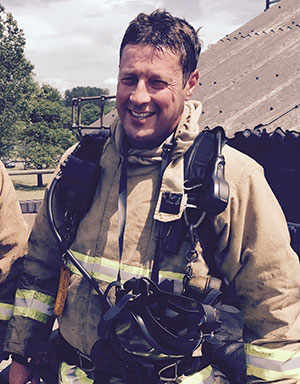Matters Within Your Control
The relationship between Article 3 and Article 5(3) and (4) of the FSO continues to confuse. I have written a number of Articles regarding the identification of the responsible person and the culpability of persons other than the responsible person, such as fire risk assessors and fire alarm engineers under Article 5, but it remains a subject which creates debate.
One area which prompts a number of enquiries is the role of fire consultants within large organisations, and their potential culpability under the FSO. This could include area health and safety managers, healthcare fire officers or independent fire consultants who advise large organisations in relation to their fire safety policies and in relation to their property portfolios.
The enquiries have a common theme. “Warren, if I advise my line manager that X needs doing, Y needs replacing and Z needs installing, can I be liable under the Order if X, Y, and Z are not done?”
My answer is usually the same. “No – if the general fire precautions that you have advised upon require the approval, consent or sign off from a line manager, director or shareholder, then those general fire precautions are not within your control.” The same applies to any fire risk assessor, independent fire consultant or fire alarm engineer whose advice is not acted upon.
In my view, Article 5 clearly explains why. Any duties imposed by Articles 8 to 22 are imposed on every person, other than the responsible person, who has to any extent, control of those premises, but, those duties are only imposed ‘so far as the requirements relate to matters within his control’.
If certain tasks have to be approved, authorised or paid for by others, they cannot be within your control. Of course, I would then usually go on to say that the consultant should make sure that he or she can evidence their advice with copies of emails (hopefully repeated), minutes or reports, sent to line managers using the appropriate procedures.
If such evidence was available, it would then be extremely difficult to place any liability upon the fire consultant. In the event of any breach of the Order, Article 3 demands that the employer would be the responsible person and therefore, first in line to face enforcement action. Evidence of the employer being made aware of potential breaches of the Order by fire safety consultants or employees would obviously be of great benefit to the enforcing authority. In such cases, the enforcing authority would prefer to have the fire consultant as a witness rather than a co-defendant, because the evidence of one co-defendant cannot be evidence against another co-defendant.
An employee can also be liable under the Order under Article 23(2)(a), but I suspect that this Article would only be used where an employee has acted in a way which was inconsistent with the employer’s instructions. I have been involved with a number of prosecutions against employees but they involved situations where either they failed to follow the correct procedures in relation to fire safety or where they had additional managerial or other responsibilities (such as being a DPS) where they had personal responsibilities for the safety of others.
But it’s not all good news for the liability of the fire safety consultant, whether in-house or not. Where such individuals or companies need to be concerned is where their advice has actually been followed by the larger organisation, and when that advice is either wrong or flawed from a fire safety point of view.
That is when Article 5(3) really kicks in!



